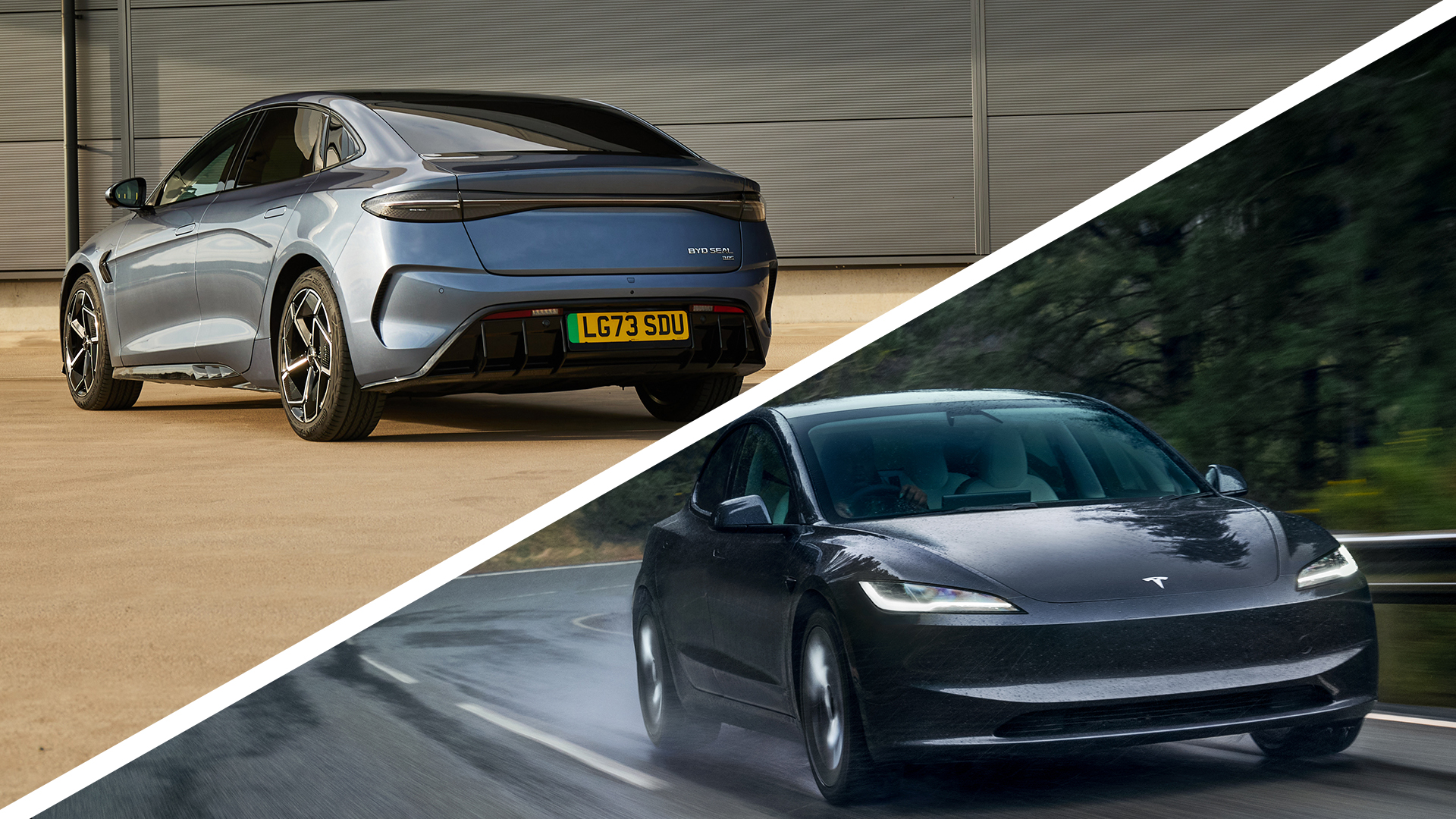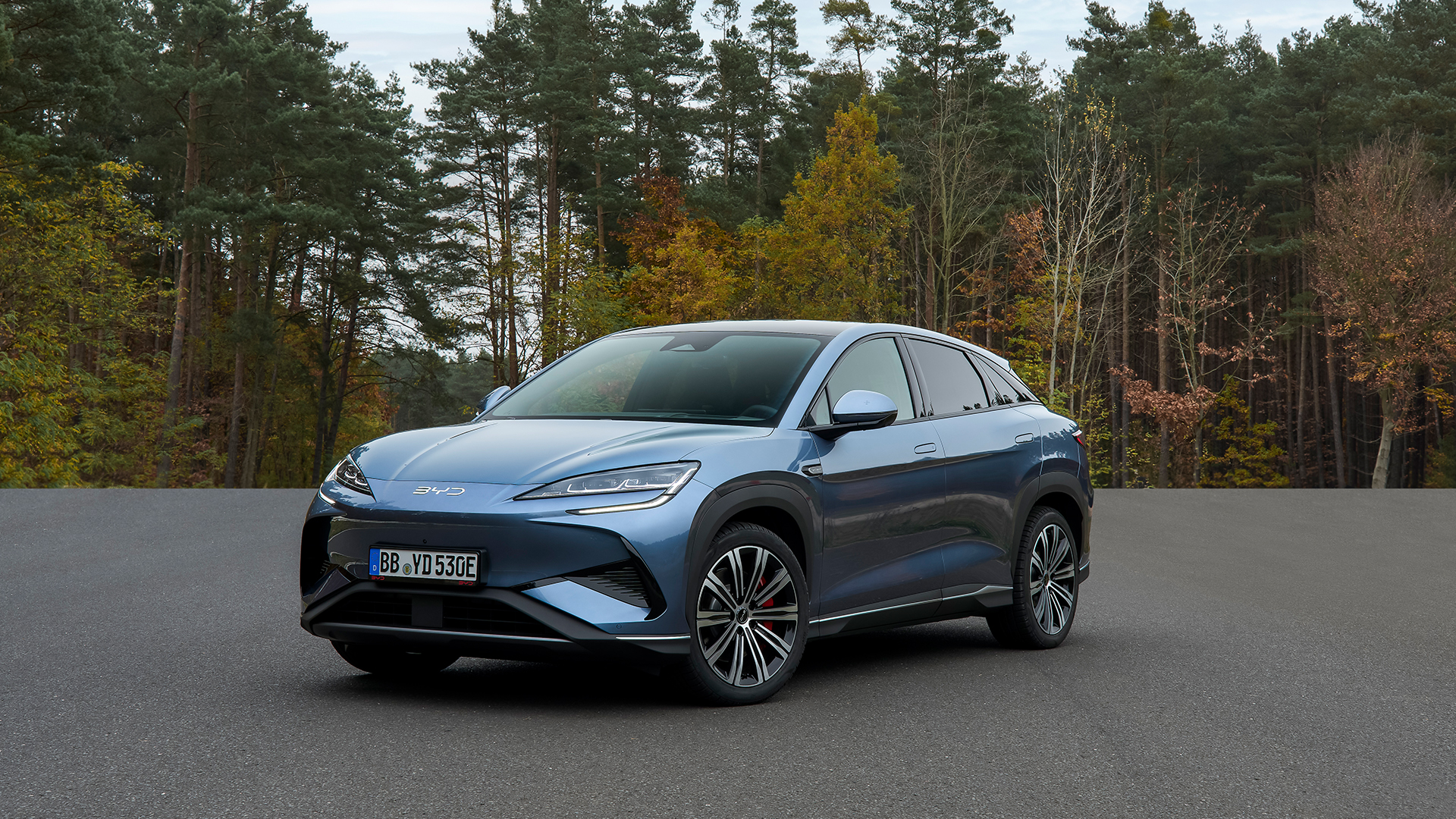BYD made more EVs than Tesla for the first time last year – proving that the world wants affordable electric options
America wants to ban them, but BYD’s cheaper EVs are catching on

- BYD built more EVs than Tesla for the first time in 2024
- Cheaper Chinese vehicles are catching on in emerging markets
- EVs will outsell gas cars in China this year
Tesla has been the undisputed king of electric vehicles for well over a decade now, producing more cars and out-selling rivals by a considerable margin during that time.
But the threat from Chinese rivals has been looming on the horizon, with Build Your Dreams – or BYD, to most – rapidly catching up to Musk’s successes.
According to The Washington Post, BYD built more electric cars than Tesla last year, the first time it has achieved such a milestone.
Although the margins are relatively small, with BYD producing 1.78 million electric vehicles, compared to Tesla’s 1.77 million, it shows that more affordable alternatives hailing from China are rapidly catching on in numerous emerging markets around the globe.
According to the Financial Times, more affordable electric vehicles are slated to outsell petrol and diesel cars in China for the first time this year, with the appetite for cut-price EVs on the rise.
BYD’s cars have long been almost half the price of Tesla’s top performing models, with the likes of its diminutive Seagull undercutting Tesla’s smallest Model 3 by almost $30,000 (or around £25,000 / AU$50,000).
A better comparison would be the more recent BYD Sealion, which takes the form of the brand’s large SUV offering and costs around $26,000 (around £22,000 / AU$42,000) in China, almost half the cost of a similar Model Y.
Get daily insight, inspiration and deals in your inbox
Sign up for breaking news, reviews, opinion, top tech deals, and more.
With the Biden Administration introducing hefty tariffs on Chinese vehicle imports, as well as seeking a flat-out ban on any vehicle that includes connected Chinese technology, the likelihood of BYD catching on Stateside looks slim.
Instead, the Chinese manufacturer has sought to gain traction in the fruitful Southeast Asia, the Middle East and South America markets.
Gernot Wagner, a climate economist at Columbia Business School, told The Washington Post that there is “not a single attractive, affordable [all-electric car] made in the U.S. that would stand a chance against a Chinese-made one in a developing market,” sparking concern that North America could lag well behind its Chinese counterparts and lose its reputation as a global automaker in the coming years.
Analysis: the gap between East and West is closing

There was a time when vehicles hailing from China were considered cheap, basic and badly-built alternatives to what the ‘legacy automakers’ of the world have been producing for decades. But times are changing.
The quality of BYD’s more recent products has been applauded by both professionals and customers alike, who have heaped praise on the generous levels of equipment offered for the affordable price tags, in-car technology that works and a battery range that eclipses that of far more expensive rivals.
On the other hand, Tesla has received flak for the often questionable build quality of its cars, with the most recent Cybertruck among those that have suffered numerous recalls and issues that have had customers heading to the forums to vent.
What's worse is that Tesla's battery technology doesn't seem to be moving at the same sort of pace as MG, BYD and several other top-performing Chinese companies.
The most recent Model Y 'Juniper' update, for example, added around 10 miles of additional range, whereas MG has said it will release a vehicle with Solid State Battery technology this year that will boast a range in excess of 600 miles.
But perhaps more worrying is the fact the North American car industry doesn’t seem to be answering the threat from China, despite the government doing everything it can to level the playing field.
Instead, the likes of Ford and GM have resorted to hybrids or returned to the production of gas-powered vehicles, rather than keeping up pace with global EV innovation, meaning those brands could soon have little to offer a world that has moved on from fossil fuels.
You might also like
- I’ve tried the new AI-powered MotorMia app – and it drags classic car mods into the 21st Century
- These powerful in-wheel motors could spawn the next generation of affordable high-performance EVs
- Android Automotive is my favorite car infotainment system – and it's finally going to get a lot more apps soon

Leon has been navigating a world where automotive and tech collide for almost 20 years, reporting on everything from in-car entertainment to robotised manufacturing plants. Currently, EVs are the focus of his attentions, but give it a few years and it will be electric vertical take-off and landing craft. Outside of work hours, he can be found tinkering with distinctly analogue motorcycles, because electric motors are no replacement for an old Honda inline four.
You must confirm your public display name before commenting
Please logout and then login again, you will then be prompted to enter your display name.